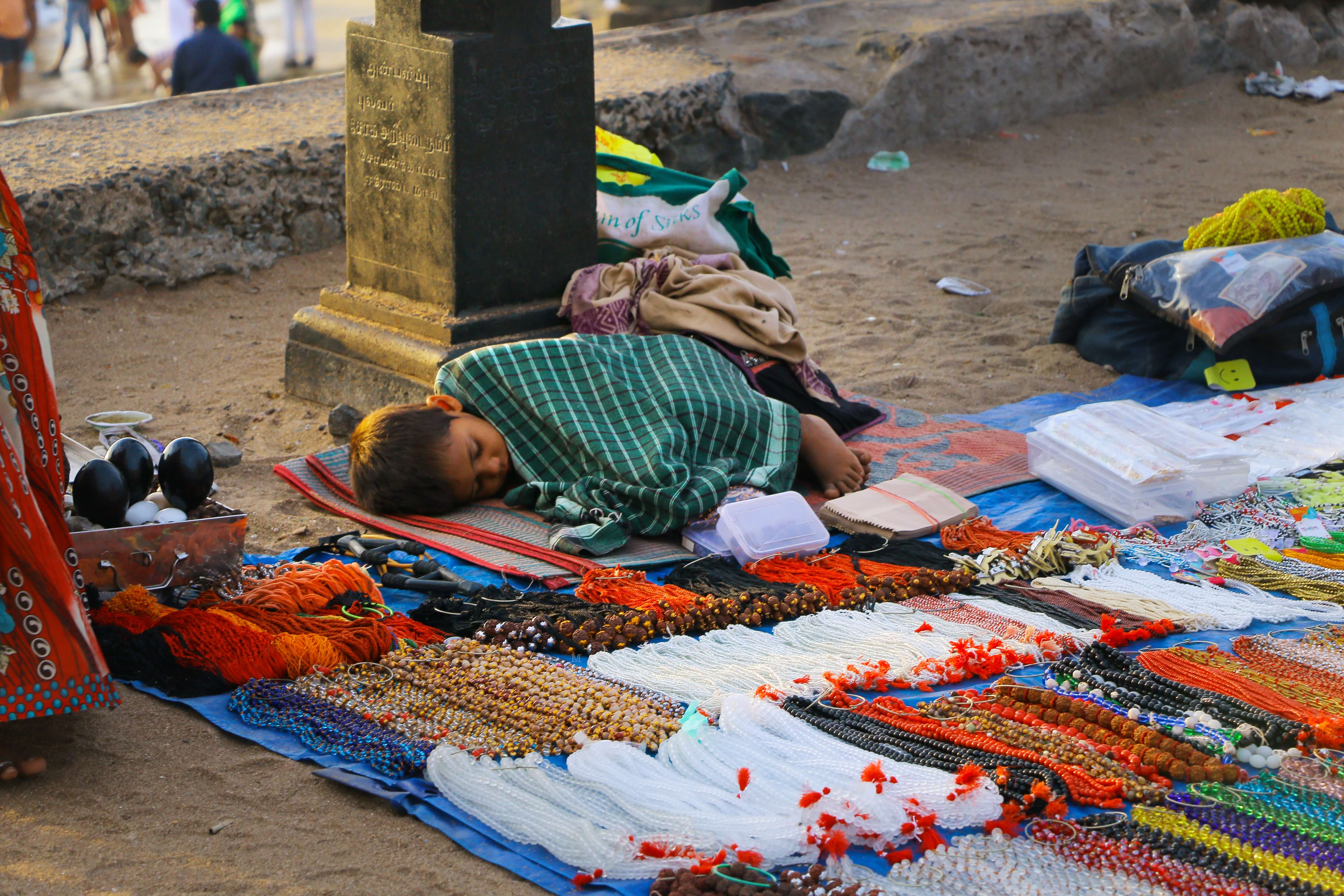Poverty is a harsh affliction that imperils millions of people around the world. Each day, many are gripped with fear as they struggle to know where their next meal will come from, how they will provide for their families, where they will sleep tonight or whom they can turn to for help. Although it affects different communities in different ways, at its core, poverty is the result of being denied access to life’s necessities—a violation of our human dignity.
In today’s hyper-connected world, global poverty touches every country and community. By understanding how different types of poverty impact the lives of different people, we discover how to break the cycle of poverty, raise the standard of living and improve the quality of life for all.
In this blog:
- Defining poverty
- Types of poverty and their impact on individuals and communities
- Frequently asked questions about poverty
- How you can help break the cycle of poverty
What is Poverty?
Poverty is fundamentally about scarcity—a lack of life’s basic human needs. We often reduce poverty to simplistic economic terms, but poverty encompasses more than just material wealth.
Poverty can be defined as a lack of material and immaterial things, including (but not limited to):
- food
- shelter
- clean water
- social support
- economic resources
- education
Pope Francis highlighted the imperative need to eradicate poverty when he said, “A way has to be found to enable everyone to benefit from the fruits of the earth, and not simply to close the gap between the affluent and those who must be satisfied with the crumbs falling from the table.”
The fruits of this earth are diverse and bountiful, but many people lack access to even the most basic resources. When we focus solely on the material and monetary aspects of those living in poverty, we may forget about many vulnerable people who suffer from other types of poverty.
3 Types of Poverty You May Not Have Known Existed
Poverty isn’t necessarily just about food security or shelter. There are other kinds of needs that can be just as damaging to a person’s life and dignity if they go without them. While the challenges often go hand-in-hand, not all impoverished people suffer from all three types of poverty. Let’s explore each type and how it affects people around the globe.
1. Poverty of Resources
Perhaps the most commonly recognized type of poverty, lack of physical resources, correlates most closely to one’s income level, economic status, employment outlook and ability to provide for one’s family. Not having stable and consistent access to food, water and shelter can foster feelings of fear and inadequacy, which makes it difficult for people to recognize their own worth and dignity.
When impoverished people lack the resources to improve their economic outlook, they cannot afford the tools or opportunity to move out of their debilitating situation. Material poverty can impair a person’s ability to flourish in society, leading to a crippling cycle that prevents generation after generation from building a better life.
2. Poverty of Persecution
Those suffering from poverty of persecution experience the intentional stripping or degradation of their human dignity at the hands of their oppressor. Poverty of persecution can be a result of oppressive governments, conflict zones, tribalism, social constructs and bigotry.
No access to education, loss of opportunity, physical violence and the threat to security are all forms of persecution that can impoverish and devastate communities. The victims of persecution may be minority groups, refugees, women and girls, members of a particular religion, or the chronically ill. When these groups are cut off from vital access to resources, they are prevented from fully participating in the community and are relegated to the fringes of society.
Read more: What Does it Mean to be Poor in Spirit? 3 Ways to Live Spiritual Poverty
3. Poverty of Loneliness
The poverty of loneliness can be as crippling as hunger. Many people who suffer from a lack of adequate resources and unjust persecution can also experience this intense loneliness due to isolation from society. However, one does not necessarily need to know material poverty or persecution to feel the pain of abandonment. It can equally affect both the materially poor and wealthy.
Many people suffer from loneliness: in particular, the elderly, the sick and the dying. To thrive, humans need community and companionship, and yet so often these people are left forgotten and alone. Loss of human connection can cause a rapid decline in a person’s physical and mental well-being and lead to detrimental outcomes. These can be prevented through the experience of love and human connection through meaningful relationships.
Frequently Asked Questions
Poverty can harm every part of a person’s life, from their physical well-being to their sense of dignity and belonging. Without access to basic needs or supportive community, individuals often face fear, instability and isolation.
Poverty has many causes, including lack of resources, unjust social structures, conflict, persecution and restricted access to education or opportunity. These factors often compound over time, creating cycles that are difficult to escape without outside support and systemic change.
A significant portion of the global population lacks access to basic human needs. Approximately 700 million people (8.5% of the global population) live in extreme poverty—living on less than $2.15 per person per day.
Solving poverty requires both compassion and action by meeting immediate needs at the community level and addressing deeper systems that cause people to go without. Through just policies, education, economic opportunity and community support, people can build lives of stability.
Scripture consistently calls us to care for those who are hungry, vulnerable or forgotten and reminds us that each person bears God’s image. Jesus teaches that when we serve the poor, we are serving him and invites us to respond with generosity, justice and love.
Breaking the Cycle of Poverty Starts With You
In the book of Genesis, we are taught that every person is made in God’s image and endowed with inherent dignity regardless of who they are, where they are born or what they accomplish. In the Gospels, we are challenged to see Christ in strangers, in the hungry, in the thirsty, in the naked and in the imprisoned. As a collective society, we are called to care for everyone around us—especially the marginalized—and to treat them with respect, compassion and justice.
Care for populations living in extreme poverty is advanced by individual and community participation and through works of charity, the practice of virtue and the pursuit of justice in our own lives.
Ways to Alleviate Poverty
- giving to charities that help people meet basic needs
- volunteering at local food banks, shelters or community centers
- supporting education and job training programs
- advocating for just policies that benefit the poor
- buying from businesses that pay workers fair wages
- spending time with people who are lonely or forgotten
- praying for those who are struggling
Pray With Us: Intercede for the poor by praying the Global Church Novena.
Divine Word Missionaries Are Working to End Different Types of Poverty Across the Globe
Divine Word Missionaries are working to serve the poor and to provide for people’s basic needs by treating the impoverished and suffering with love. Our missionaries lift them out of poverty through education, support and opportunity. They put faith into action by feeding the hungry, sheltering the homeless, educating children, caring for the sick, welcoming the stranger, providing access for persons with disabilities, and working for greater justice and peace.
Our food distribution programs, medical centers and homeless shelters help people get the basics they need to survive. We help families and communities to combat hunger and homelessness, overcome poverty and dependency, build housing, resist crime and seek greater justice. Additionally, our lessons in sustainable agriculture, microloan programs and educational opportunities attempt to help people break out of the crushing cycle of poverty and create a more promising future for their families.
To discover more about how Divine Word Missionaries work to end poverty (and how you can help), explore our Impact on Poverty resource.
If you would like to help meet the basic needs of the poor, consider supporting Divine Word Missionaries’ global healthcare projects. Your generosity helps bring vital medical care to some of the most impoverished communities around the world.









